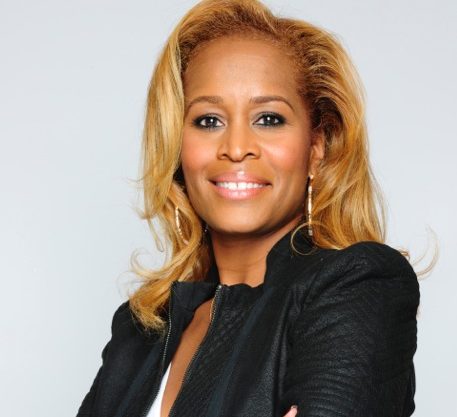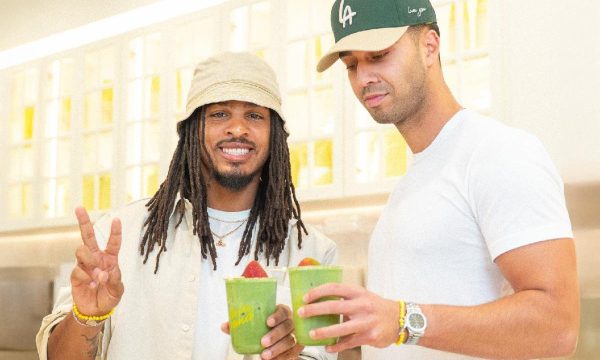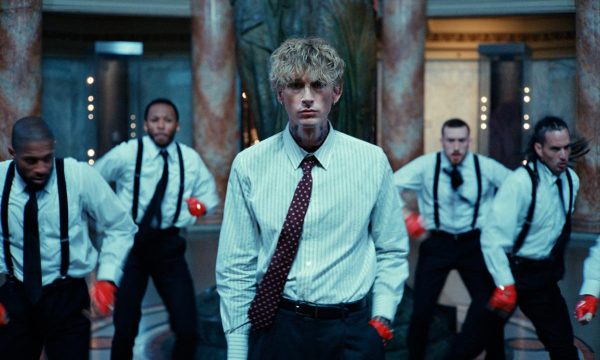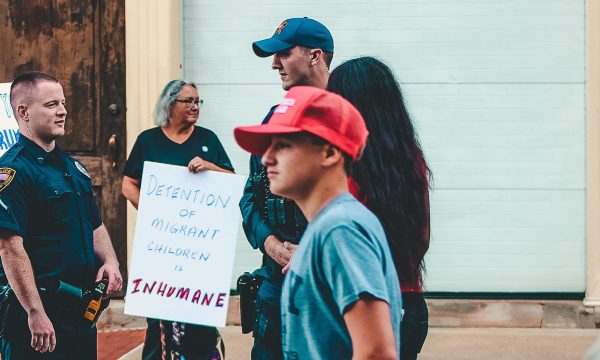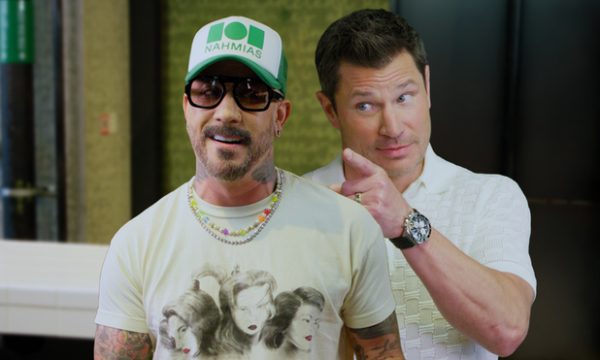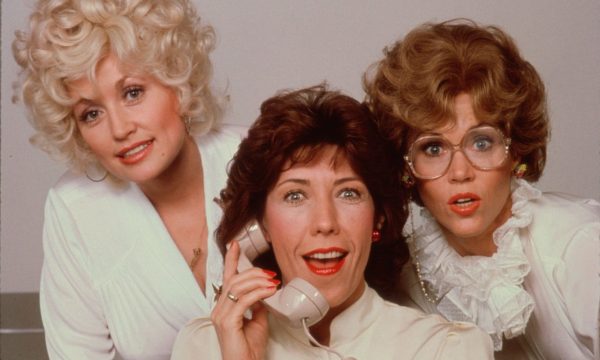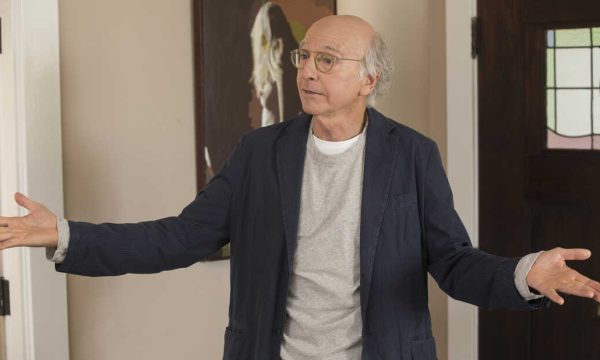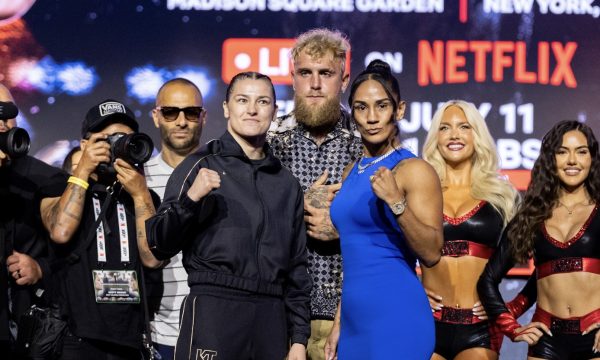 Having been known as a publicist for several decades, I am still regularly called upon to tailor special gift trunks for charitable organizations, something that I have done time and time again, which has become my calling card. Although it is definitely a challenge, it is fun to research the gifts that will be well-received by everyone. This is how I was introduced to The Sitota Collection, a high-end soy candle company led by Yvette Davis Gayle. Intrigued by how the company came to life, I decided to find out about the woman behind the product.
Having been known as a publicist for several decades, I am still regularly called upon to tailor special gift trunks for charitable organizations, something that I have done time and time again, which has become my calling card. Although it is definitely a challenge, it is fun to research the gifts that will be well-received by everyone. This is how I was introduced to The Sitota Collection, a high-end soy candle company led by Yvette Davis Gayle. Intrigued by how the company came to life, I decided to find out about the woman behind the product.
Regarding the origin of the company, Gayle said,“What first began in my kitchen, blossomed into existence from an idea my six year-old son had one day. ‘Mama,’ he said as I was making up a batch of my hand poured candles. ‘We should have a manufacturing plant and have stores in every country that sell our candles.’”
From his lips to God's ears, The Sitota Collection was born. But this is not her only job. The native New Yorker, who now resides in Los Angeles, is also a veteran music publicist during the day time, (she is Vice President of Publicity at Interscope/Geffen A&M), a candle maker during her free time and a full time mother, which she enjoys the most and works very hard at.
What makes Gayle’s story worth telling, in my opinion, is that she is a role model and an inspiration for many women who are going through what she went through to have a family.
Having always wished for a big family, she discovered early on that her dream of becoming a mom might not materialize. She had fertility issues which resulted in miscarriage, forcing her to stay on bed rest for months and putting her career on hold. Her incredible journey began then. Fascinated by her courage and leadership, I met Gayle who recounted her story over lunch. “My fairytale begins with an enchanted courtship, miraculous birth, and the most profound gift from God. The Sitota Collection is inspired by the love of travel and cultural diversity, born out of necessity, to share one of life’s most precious gifts… A remarkable journey that led me to Ethiopia… to my daughter Sitota.”
How did you get to do what you’re doing now?
My day is kind of split, every day is a different day. So I focus, obviously, on my day job during the day. A lot of the work that I do for The Sitota Collection is on weekends or at night. I develop the line. I wanted to do something very creative, and I always made candles as a hobby, and so in 2011 my husband and I adopted my daughter, Sitota, from Ethiopia.
Which is really another story altogether.
It is another story altogether. We love traveling, we’ve traveled the world. I’ve traveled the world with my clients and my family, and there’s always something about learning new cultures and having new experiences. And the one thing about starting this line was to be able to combine several things that I love: travel and my family. And putting those two things together is kind of like a celebration, so I don’t view it so much as another job, even though I’m an entrepreneur and I started this company. I never really wanted to be an entrepreneur; I think I’m more of a corporate, structured kind of person.
I just worked night and day, diligently for about two years to really put that together, meeting with wax experts, perfecting my craft, meeting with perfumers, and just really getting the process and technique down. I met a lot of great people along the way.
This was something just for me and my family and the love of my children. I’m not sure at the time that I knew it was going to morph into what it actually morphed into, which is fantastic. I’m not sure that day in the kitchen and sparking that moment, I knew exactly what it would become. But I’m happy to say we’re doing really well. We’re in Nigeria, and we’re about to launch in Ethiopia. I also have a rep in South Africa.
What about here?
I don’t have a rep here in the states yet, which is what I need to find, so that I can get into more stores. Here in LA, we’re sold directly to the consumer, and we have a spa and store in a New Orleans boutique in the Marriott hotel. But really, my first focus was getting the product made, getting it out, and I spent this year really sending it to celebrities. I did the Grammys and the Oscars and different events and whatnot, and that kind of was my main goal and now my goal is, ‘You know what, I’ve got to get it into stores.’ It was a lot easier, or maybe the interest was a lot quicker, overseas, but of course I have a South African rep who deals in the luxury market. My husband works in South Africa, so our contacts there are just as strong. My contacts there may even be stronger in that luxury space overseas than it is here domestically, so that’s where we’re starting to build.
You have four different fragrances, which was the first created?
I can’t even say which one was first, because I created about nine altogether, and then I did focus groups to try to really pinpoint which ones. AIGYIPTOS is amber, jasmine, orange, vanilla. COCO NOIR, is coconut and cassis.
You have nice packaging. Are you behind it?
I have to say that I feel like I’m the one-woman show. I found a great designer, she’s in Hungary, and she helped design it.
I hate to say I have a favorite because they’re all like my children and you should not choose one over the other, but HAVANA is kind of my signature family one. It’s about my husband’s family in Jamaica, even though it’s HAVANA, and it has leather and tobacco in there. My husband’s great-grandmother smoked a pipe. His mother picked pimento berries in the fields of Jamaica, so it has pimento berries in there.
And then on the back of it, there’s a little story that tells you the meaning of these scents. COCO NOIR is from our trip to Thailand, to Chiang Mai, which is one of my most favorite places in the world. BLUE NILE is my Ethiopian candle, from the Blue Nile waterfalls in Ethiopia. And AIGYIPTOS is really about just exploring interesting people and lands and cultures, and of course, I explained HAVANA.
Why those names?
Nothing specific, other than that’s just what I came up with. It sounded right. HAVANA, even though it’s about Jamaica, when my husband’s great-grandmother used to smoke a pipe and tell stories to the kids at night, you could see the lights of Havana, Cuba in the background.

When did you launch the company?
Last December. It’s very new, and it’s very exciting just to do something a little bit creative, and do something for myself and for my family. My husband is an entrepreneur. He loves what he does. Right now he’s working on a marketing campaign with Hyundai and he’s working with Fuse. He’s a mover and shaker, but marketing and branding is his field.
Tell me about your little girl.
Sitota. She is the most amazing little person. Both of my children are, and I’m so grateful and thankful that they have such an amazing relationship. They are joined at the hip. My son is eight and she is four, so there’s a good space of years between them, but they adore each other. And she is just remarkable. She’s brilliant. She really is. It’s funny because right now I’m just going through the process of looking at schools to figure out what is going to be the best fit for her, because she is four and she’s reading, she’s writing, she’s speaking Spanish. She even knows a little bit of sign language and she’s amazing. She goes to preschool, but she has the memory. She’ll meet you once, and remember your name. She’s just remarkable.
Tell me about the adoption.
It was a long process. It took us almost three years.
Did you think it was going to be so long?
No. Well, I thought that going internationally, it would happen a little quicker, at least that’s the research, and at the time, what I thought. But it didn’t turn out that way. And I think the same time that I started applying, there was a whirlwind of applications of people trying to adopt overseas and the waiting list was just tremendously long. So we waited about two and a half years before we got matched with a child. And then it took us another six months once we were matched with her to conclude it.
How difficult was it for you while waiting?
It was very, very frustrating. But in the end, now I think back and all of that is such a blip. I remember sitting up late, late at night, until two o’clock in the morning, just wondering who this little girl was going to be, when was it going to happen, how much longer was it going to take. And you had moments of doubt, like, okay, I’m ready to give up. But give up and do what? (laughs)
You wanted a daughter?
I wanted a daughter and I was not going to go through another pregnancy. I had a very, very difficult pregnancy. I was on bed rest for about 12 weeks, and that was difficult. So it was something that we chose that my body just wasn’t going to handle. And somewhere in my mind, I always wanted to adopt. I think in my early twenties when I first started working at Sony Music, I went to Haiti with the Fugees and Wyclef and I went to a few different orphanages and he played for the kids and I fell in love with this little girl, and I wanted to take them all home. That feeling has lingered with me until this day, so I think that I always wanted to have my own biological children, but I always, somewhere in the back of my head, felt like I would adopt.
 Is she too young to know that she’s adopted?
Is she too young to know that she’s adopted?
No, she’s not. I tell her all the time, and she doesn’t quite know what the word means, but she knows she was born in Ethiopia. If you ask her where she was born, she’ll tell you Ethiopia. She knows that mommy, daddy, and Mekhi flew a very, very long time to go pick her up, and fly all the way back home. Even before I did this, obviously it’s not a secret now, but in just thinking of how we were going to raise her, it was very important that we kept her culture. We have things reminiscent of her culture, and we have Ethiopian friends, and we eat Ethiopian. I look forward to the time traveling back and taking her there. We just want her to always be aware and be proud of who she culturally is. My husband is Jamaican, so my son is like, ‘I’m Jamaican!’ And he’s proudly Jamaican, and she’s probably Ethiopian, and they’re like, ‘Mommy, what are you?’ and I’m like, ‘I’m American.’
Is adoption something you would recommend other women to do, to adopt from other countries?
I would recommend it. It worked for me, but it may not work for everyone. Everybody kind of has to decide and choose their own path, I think, when it comes to adoption. I have a friend of mine who recently adopted a child and it didn’t take that long for them here in the states. They went private through a lawyer, got connected with the birth mother and that adoption was wonderful. And then I have friends who try to adopt here. I think in California where the law is, that the birth mother has about 30 days to change their mind even if they’ve gone home from the hospital with the adopted parents.
I have two friends who had a situation where both mothers changed their minds after they had the babies, and that’s very hard and very difficult.
Is it different over there?
I think it works this way for all the other countries, but I’m not a hundred percent sure. For Ethiopia, the children have to be wards of the state already. They don’t allow you to meet a woman and find a birth mother like you do here, and then do a private adoption.
What about health wise?
Health wise we had no issues at all. Not even malnutrition, which is common. But during the process, they’re so detailed on everything that they give you, so that by the time that you are presented with the child, you would be able to say yes to the child. So if during your discussions and your orientation and things that you’ve said, if you said, ‘I wouldn’t be able to adopt a child that has a hole in the heart.’ They’re not going to bring a child who has a hole in the heart, and say, ‘Would you take this child?’ They don’t do that. They really try to look at the family and match accordingly.
Do you know her story?
The adoption agency we worked with, one of the reasons why I chose them, it was Children’s Home Society and Family Services in St. Paul, Minnesota, was because they developed this whole life book and this whole story so that when I want to sit down with her and really explain her story, I have all the background and the information.
Do you get to choose a little girl?
You don’t choose. You’re kind of on a list. In this particular agency and this particular country, I think there might be agencies that operate differently where they may give you a choice maybe you meet them, maybe you don’t. Our situation wasn’t like that. They kind of sent us a dossier, everything about her medical stuff, and then you can have it reviewed here by a medical doctor, and they give you time to review it and then you can say, ‘I accept.’
 What kind of screening do you have to go through to be accepted by the agency?
What kind of screening do you have to go through to be accepted by the agency?
You have to go through a home study. So you usually deal with a home study agency where you live, which may not be necessarily where your adoption agency is, because they could really be anywhere. They vet you, and they vet all of your personal history and your personal life and your finances to make sure that you can afford to take on this task. They interview you to make sure that they understand why you’re going through the adoption process, why you want to adopt, and why you chose to. It’s a very, very thorough process.
Do they visit your home?
Yes, and they check your outlets and where the stove is to make sure the house is safe. They’re very, very thorough. They have to write up this report approving you, and saying, ‘Yes,’ why they think Yvette and Colin Gayle would make good parents. And they also review anybody else who lives in the home and if there are children in the home, they meet those children, too. So they write up this very substantial report and recommendation, then that goes to the adoption agency, but I think it also has to be state certified as well.
My mom adopted a little boy before I was born, and the mother returned, and said that she wanted her child back, and my mom gave him back. Because she was like, ‘This is your child, I’m not going to keep somebody’s child who wants it,’ and I think there was a convent or something that got involved with the mother to help her do whatever.
That must’ve broken her heart.
My mom did tell me one day that she thought about that child almost every day. And I think that was part of my decision, that and hearing the stories from other friends I know who have adopted. I don’t want to go through falling in love with the child, taking care of her, and then having somebody knock on my door, and say, ‘Sorry, this is not going to work.’ I was like, ‘No. Not doing that.’
I knew for me, I would not be able to handle that situation.
And has your mom found out, later on, how he is doing?
Yeah, he grew up several blocks from our house. She saw him grow up; she saw what he became. He used to shop at my dad’s grocery store in New York, and that has to be a constant reminder, but it made her feel good that he turned out to be such a great kid. He ended up turning out to be a teacher, just like my mom, which was odd. I think that everybody has to make their own decision. Everybody has a different reason for going internationally or staying domestic. We chose Ethiopia because my husband is Jamaican and the ties between Jamaicans and Ethiopians are so strong, culturally.
How do you manage all your activities?
I’m usually at Interscope from about 10 to 7 every day. It’s tough. (laughs) I wear many hats and I’m trying to juggle them all. I don’t sleep much. But, I love what I do.
Do you take your kids to school?
My husband, when he’s here, takes them. I get them up and I cook a full breakfast in the morning because I’m not there for dinner, so morning is my time with the kids. I cook breakfast, I do pancakes, eggs, quesadillas, I’m like a short order cook. ‘What do you want this morning?’
So you get up at 5?
I get up at 5:45. And I feed them and get them dressed, get them out the door, and once they’re out the door is when I stop. This is about 7:30 or 7:45, and then from there to about nine o’clock I’m doing what I need to do for this. I’m checking orders, I’m checking in with my social media time, I’m checking in with my SEO guys who are in South Africa.
You complete a full job by eight o’clock.
Yes. And by the time I get to my day job, I have done so much. It’s all the emails that I get overnight, and if there are just manufacturing questions and things like that, or if I’m checking orders to make sure everything is going smoothly or whatnot. I try to do as much as I can then, and then get to the office and it depends on what my week is like or whether I’m here or whether I’m in New York.
But I think the only way that I can survive in doing all that I do is that I really love what I do. And it makes me happy to do it.
At the end of the day success comes to the ones who work hard and love what they do. Though there are many wonderful high-end candles on the market, I strongly believe that it won’t be long before Neiman Marcus and Fred Segal come knocking. I truly recommend for everyone to experience The Sitota Collection.
http://www.thesitotacollection.com/
Yvette's interview can also be found in issue 47 of LATF The Magazine.


